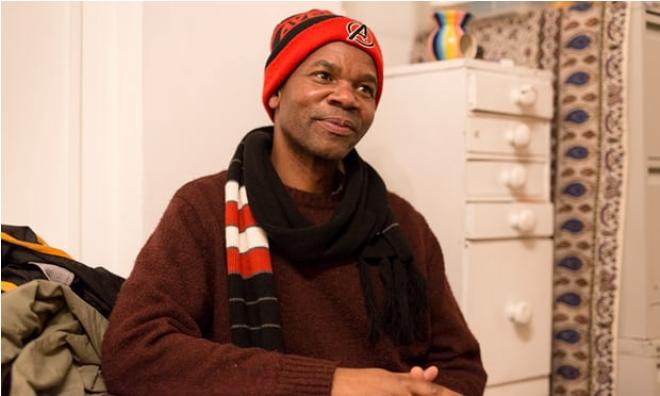
Sunday December 24, 2017

Suzie Jones was 17 when she first arrived in the UK. She had travelled alone, after fleeing violence in her home town, on the border of Somalia and Ethiopia. When she was 13, her father had been killed in front of her. She hoped for a better, safer, life in the UK.
Instead, she found herself trapped in an exhausting struggle with the asylum system. “It was like I was living in hell,” she remembers.
Just over a year after her arrival, Suzie was told her application for asylum was refused and that she should return to her home country. As a young person she was entitled to housing, but this would disappear when she turned 21. Then, she would be destitute.
Going home wasn’t an option, and she had no choice but to fight the Home Office decision. Suzie submitted further evidence on three separate occasions over the next decade. Each time her case was being considered she was moved to asylum accommodation in an unfamiliar town and given around £36 to live off per week. Each time her application was turned down, she would be evicted and have her financial support revoked. She was left to sleep rough countless times, in London, Leeds and Nottingham.
“Sometimes, because I didn’t have anything to eat, I would faint in the street, it was very bad for me,” she says. Often, she would spend the night walking the streets. “I didn’t want to sleep, maybe someone could come and rape me. I was scared,” she remembers. “I would just sit down and start crying.
“Sometimes people would say ‘Why are you homeless, where have you come from?’ Some of them were drunk, they’d swear at me, they’d throw something on me, they’d say ‘Why do you come in our country?’.”
Suzie was eventually put in touch with Nottingham Arimathea Trust, which provides housing and support to people whose first claim for asylum has been refused. Last March, after being helped to build her application, she was given refugee leave to remain.
Arimathea Trust is one of more than 40 charities and projects that are members of the No Accommodation Network, or Naccom, which specialises in providing shelter and support to destitute asylum seekers, refugees and migrants who have no recourse to public funds.
The network, one of three charities supported by the Guardian and Observer appeal, helps desperate people who have no right to work, no financial support and nowhere to live. “Many are forced to sofa surf, sleep on the streets or enter into risky situations to survive. They can be left in this limbo for years, unable to return and unable to rebuild their lives in the UK,” says Hazel Williams, Naccom’s national director.
Naccom will use its share of the Guardian and Observer appeal donations to build capacity into the network and support frontline projects via selective grants. It is not known how many destitute asylum seekers are living in the UK, but some estimates suggest there may be as many as 150,000 people, adds Williams.
“What we do know is that only a small minority are able to get the essential, often life-saving assistance they need,” she says. Worryingly, Naccom reports that the shelters and projects it represents were forced to turn away more than 1,000 people last year because their services were full. There simply aren’t enough spaces to accommodate people. Cuts to legal aid, along with delays in the asylum system, have made matters worse.
It’s not just physical dangers that face people who are living destitute. The uncertainty of not knowing whether you will have somewhere safe to sleep that evening, let alone whether you will be sent back to face persecution in your home country, has a devastating impact on a person’s mental health.
Michael Moyo, who is staying at a shelter in Coventry, first applied for asylum in 2002, but is still waiting and unable to work. His relationship with his wife – who along with their two children had her asylum application approved – broke down after his application was refused. He meets his children in town because they don’t know that he’s homeless. “I feel ashamed. I feel embarrassed,” he says. “I’m supposed to be a father.” Michael was an engineer in Zimbabwe. Today he relies on meals from charities and, until recently, sofa surfing with friends.
There’s only so long you can rely on your community for help, says Ann Banda, from Malawi, who stays in the same hostel as Michael. “The moment you say you are homeless, people will think, will she not steal in my house? She must be dirty, she hasn’t bathed.” Many tire of giving support, others change the way they treat you. Gradually, you isolate yourself from friends.
For Suzie, who has no family in the UK, the Arimathea Trust provided emotional, as well as practical, support. “They changed my life,” she says. “They listen to me, and when I cry they cry. Sometimes I come here and cry and shout at them. They understand why I shout. I’m not a bad person. [The system] makes you feel crazy.”
Now that she has refugee leave to remain, she wants to work and support others. “In these cold times, for someone to not have food or to be homeless, they need help. I had to fight for my life. I want to help people like me.”